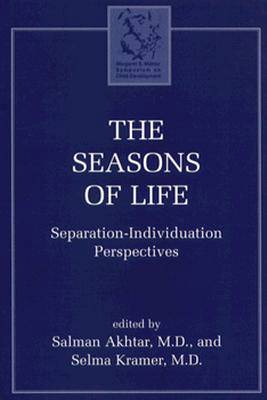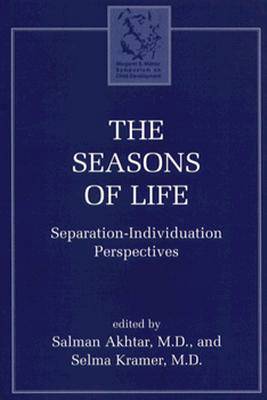
- Retrait gratuit dans votre magasin Club
- 7.000.000 titres dans notre catalogue
- Payer en toute sécurité
- Toujours un magasin près de chez vous
- Retrait gratuit dans votre magasin Club
- 7.000.0000 titres dans notre catalogue
- Payer en toute sécurité
- Toujours un magasin près de chez vous
104,95 €
+ 209 points
Description
This work shows how, in applying Margaret Mahler's developmental framework to the life cycle, the separation-individuation process continues, even after a degree of self and object constancy has been achieved. It demonstrates how people pass through the early separation-individuation stages.
Spécifications
Parties prenantes
- Editeur:
Contenu
- Nombre de pages :
- 189
- Collection :
Caractéristiques
- EAN:
- 9780765700551
- Date de parution :
- 01-06-97
- Format:
- Livre relié
- Dimensions :
- 155 mm x 231 mm
- Poids :
- 466 g

Les avis
Nous publions uniquement les avis qui respectent les conditions requises. Consultez nos conditions pour les avis.





